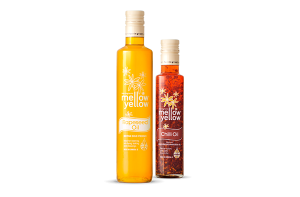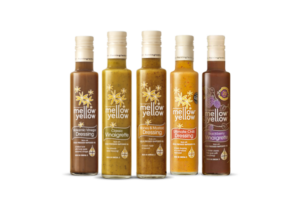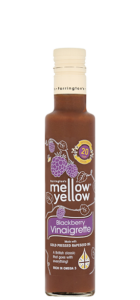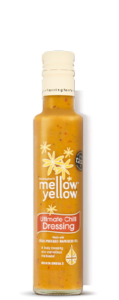
The Benefits of Cooking From Scratch - By Guest Nutritionist Kate Law
Yes, cooking from scratch can be time consuming and whilst we all have the same 24 hours in a day, time is something most of us struggle with.
Cooking from scratch isn’t scary, it’s about being organised both in the kitchen and with your budget too.
My top tips would be:
• Invest in a meal planner. You don’t have to plan every single meal, just start with one or two a week. It’s also important to leave room for unplanned meals as they are a great way to use up food which would otherwise be thrown away.
• Try to actively think about not wasting food. Currently in the UK it is estimated that around 9.5million tonnes of food is wasted every year, 70% of which was intended to be consumed by people. The food that could have been eaten is enough to feed the entire UK population 3 meals a day for 11 weeks(1). Planning meals that work with leftovers is a good idea, or utilising the freezer for future meals.
• Try one new meal a week which will also encourage you to buy one new food item per week, variety is great for our gut bacteria.
• Use your store cupboard staples which are usually more cost effective too. Tinned and frozen products are just as good and sometimes even contain more nutrients than fresh.
Are There Any Mental Health Benefits When Cooking From Scratch?
Cooking has been used in rehabilitation for a long time now, however the evidence behind the benefits is somewhat limited. A systematic review in 2018 found that cooking may positively influence psychosocial outcomes, however much more research is needed in this area(2).
We know that many people find cooking from scratch a great activity for mindfulness, brilliant for giving yourself something to focus on and clear your head, or as a way to spend time without a phone or screen, with no distractions.
So, What Do We Know?
Dopamine is often referred to as the happy hormone and is produced naturally by the body. It is responsible for that good feeling we get when we see photos of puppies, give a loved one a hug or more recently receive a “like” on a social media post. Dopamine works in the body with serotonin (another hormone) to regulate our mood, sleep appetite and memory(3).
When it comes to food there is no single food which can improve our mood or mental health however there are some which positively contribute to how we feel through promoting serotonin and dopamine production. Tryptophan is an amino acid found in protein and it also promotes serotonin production. So including foods which are good sources of tryptophan, such as oily fish, poultry, nuts and seeds, dairy, eggs and even chocolate can help(4).
Vitamin D can be really important in our mental health. It comes in two forms, D2 and D3, and is a fat-soluble vitamin. The majority of vitamin D3 comes from being synthesised in the skin with the presence of sunlight(5) and one of the main benefits of adequate vitamin D levels include a reduction in depressive symptoms(6).
In the UK, from October to March the sun often isn’t strong enough to work with the skin and generate enough vitamin D3 so a supplement of 10mcg per day is sometimes recommended. And since the covid-19 pandemic started in March 2020, many of us are now being advised to take this supplement all year round due to much more time being spent indoors. Those with dark skin pigmentation, or who spend all their days inside might consume a vitamin D3 supplement all year round and may want to get their levels regularly tested due to being at a higher risk of deficiency(5).
Spending time outdoors is always the best option though, as not only does the sunlight help you to produce vitamin D3, but being out in the fresh air, maybe walking around the countryside or local park, is brilliant for your mental wellbeing. Getting into a daily routine of a lunch time or after-work walk is a brilliant way to achieve your daily step target, get some fresh air and soak up some sun to help your body produce that all-important vitamin D3!
Cooking can also be a great way for some to improve their wellbeing, whether it's taking time to create something for loved ones, clear the mind or reduce stress, plus cooking from scratch means you always know exactly what is going into your food. It is worth reminding yourself that cooking food from scratch isn’t complicated, Mellow Yellow have many brilliant, quick, cheap and nutritious recipes that you'll find easy to integrate into your weekly menu:
• Classic Vegetarian Protein Salad
• Smoky BBQ Beans
• Chilli Cumin Salmon Salad
More recipes can be found here.
References
1. https://wrap.org.uk/taking-action/food-drink/actions/action-on-food-waste
2. https://www.ncbi.nlm.nih.gov/pmc/articles/PMC5862744/
3. https://dictionary.cambridge.org/dictionary/english/dopamine
4. https://www.integrativepsychiatry.net/product-category/neurotransmitters/serotonin/
5. https://www.bda.uk.com/foodfacts/VitaminD.pdf
6. https://oce.ovid.com/article/00006842-201404000-00009/HTML
This article was written by Registered Associate Nutritionist Kate Law who is the Founder and Director of The Food Boss a nutrition consultancy specialising in women’s health, sports nutrition and working with the food industry. You can find Kate on Instagram @the_food_boss_.

 Oils
Oils Rapeseed Oil
Rapeseed Oil Chili Oil
Chili Oil Dressings
Dressings Blackberry Vinaigrette
Blackberry Vinaigrette Classic Vinaigrette
Classic Vinaigrette Balsamic Dressing
Balsamic Dressing Honey & Mustard
Honey & Mustard Ultimate Chilli Dressing
Ultimate Chilli Dressing


